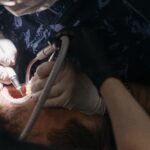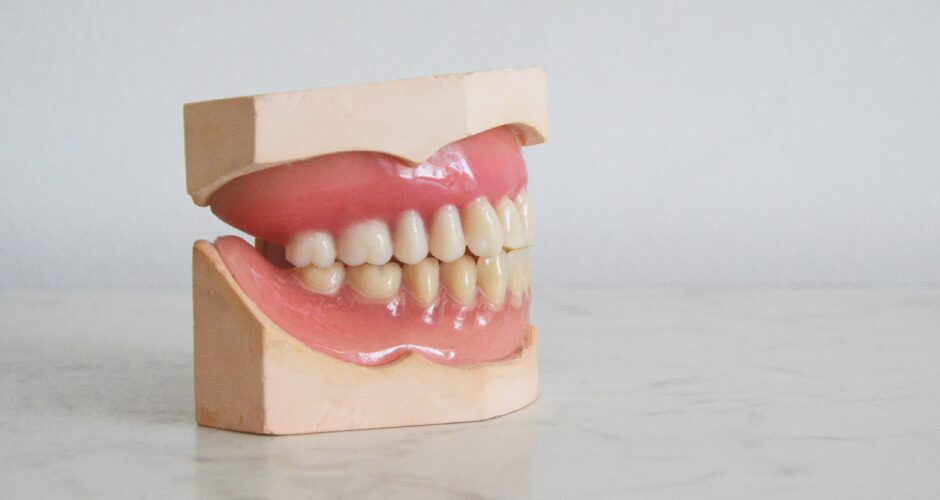
How to Deal with Minor and Major Tooth Pain
July 25, 2023
How To Treat a Swollen Gum Around One Tooth
September 20, 2023Periodontal infections (aka gum infections) can be quite painful. But more importantly, they can be signs of larger problems to come. If you’re experiencing recurring swollen gums, it’s crucial that you go through the following steps to ensure your mouth is healthy.
Taking these tips to heart can help alleviate the pain and discomfort that come with swollen gums — and give your mouth a clean bill of health again.
[Related: How To Properly Treat Your Receding Gums]
Symptoms of Swollen Gums
First, you should know what some of the symptoms of swollen gums are to rule out any other health issues.
Swollen gums typically have a reddish or purplish hue instead of their normal, healthy pink color. You may also notice that your gums protrude or bulge. In more extreme cases, swollen gums may cover parts of your teeth.
If you’re suffering from swollen gums, you probably feel extra sensitivity and pain, and your gums may bleed when you brush them.
Causes of Swollen Gums
A variety of dental issues can cause swollen gums:
- Gingivitis
- Periodontitis
- Tooth abscess
- Trench mouth
- Poorly fitting dentures
- Poorly fitting mouthguard
- Bacterial infection
- Orthodontic treatment
- Tooth decay or infection
- Root fracture
- Something stuck in or under your gums
Additionally, viral infections, medication side effects, unmanaged diabetes and even pregnancy have been known to cause swollen gums.
[Related: Your Guide to Flossing]
Schedule an Appointment With Your Dentist
If you’re suffering from recurring swollen or bleeding gums, your dentist needs to immediately inspect them and prescribe the proper care and treatment. Swollen gums can be a precursor to something more serious (and more painful). They’re also a hallmark of an acute periodontal abscess.
Schedule an appointment with your dental office immediately to take charge of your gums’ health and wellness.

Here are some additional ways to find relief from recurring swollen gums.
Take Antibiotics
Once your dentist treats your gums and any abscesses, you need to protect your mouth from infection. Your dentist may give you a round of antibiotics and a nonsteroidal anti-inflammatory drug (NSAID) to ensure you heal well.
Remember: An abscess that creates a wound can take one to two weeks to completely heal. Be sure to follow your dental specialists’ instructions to recover fully.
Practice Good Dental Hygiene
This is a big one! Once your gums heal completely, you need to practice proper dental hygiene to avoid any future incidents. Brush and floss often, and make regular appointments for tooth and gum cleaning.

[Related: Periodontal Disease and Cardiovascular Health]
Improve Your Lifestyle Choices
In all seriousness, now’s the time to cut back (or quit completely) lifestyle choices that can affect your mouth’s health.
Stop using tobacco products (including vaping), cut down on alcohol and try your best to stay away from sugary foods. All these things can encourage gum disease, tooth decay and even oral cancer.
Try Temporary Home Treatments
Although it’s important to schedule a dental appointment for your swollen gums, the pain probably won’t hold off while you wait.
For quick relief at home before your appointment, rinse your mouth with warm saltwater a few times a day. You can also apply an ice pack to your mouth to reduce swelling and inflammation.
Are Recurring Swollen Gums Permanent?
Don’t worry. Between you and your dentist, you should be able to cure swollen gums with proper treatment.
Depending on the underlying issues, gum swelling may even go away on its own. Just remember that the sooner you get treatment for swollen gums and more serious issues like gum disease, the better your chances are for long-term oral health.
[Related: How To Prevent Oral Cancer]
Contact Cascadia Dental Specialists Today
If you have any questions about gum pain, swollen gum around one tooth or would like to schedule a consultation, get in touch with us at Cascadia Dental Specialists.
You can fill out our online form, call us at (425) 644-7444 or email us at info@cascadiadental.com. We look forward to hearing from you!





